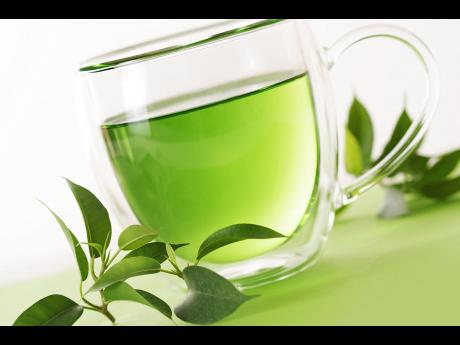Dr Alfred Dawes | Balancing the role of bush medicine
Jamaicans love alternative treatments for their medical conditions. Although we have a well developed Western styled healthcare system, we tend to gravitate to natural remedies. This is seen particularly with diseases such as chronic non-communicable diseases, for example, diabetes and hypertension, where conventional medicines have not been able to achieve a cure.
Chronic pain conditions such as arthritis are treated with several types of balms and even white rum. White rum is used to prevent a cold and treat a fever.
Fever grass, aloe vera, honey and lime, ginger, garlic and various roots blends are used to treat numerous conditions from inflammation to stomach issues.
Many hypertensives come off medication to try beetroot, and guinea hen weed is an alternative to chemotherapy.
While some of these natural remedies work, there are serious side effects, from causing a delay in definitive treatment that would better help the patient, to direct harm to the body, especially the organs responsible for detoxifying the body - the liver and kidneys.
BACK IN TIME
But even with these risks, Jamaicans still swear by their natural remedies, irrespective of educational level. To find out why, we must go back in time.
The Africans brought over to work as slaves brought with them their customs and traditions from the Motherland. There was a strong belief in spirituality and natural remedies, as this was the only treatment for their diseases.
The plantations provided healthcare for the slaves through plantation hospitals staffed by plantation doctors. However, the slaves used herbs administered by elders proficient in their use, obeah men, madda women and myal-men.
These 'slave medicine' practitioners were already trained herbalists and spiritual healers in their native land and passed on their knowledge to apprentices who curated the knowledge for future generations.
Slave medicine was an accepted part of plantation life and the healers would work alongside the European doctors in the slave hospitals. In fact, on many occasions the tropical diseases that were new to these doctors were better treated by slave medicine. In some instances, the white masters were treated by the slaves with good results. The slaves firmly believed in the efficacy of these treatments and later when they became free men they continued to rely on the herbalists and spiritual healers. The persistence of African medicine in Jamaican culture was further cemented by economic and social changes around the time of emancipation.
USED FOR EVERY CONDITION
The plantation doctors who were highly paid to take care of the slaves left Jamaica in droves during the post emancipation era. The masters had no reason to maintain the plantation hospitals since they owned no slaves and were not interested in providing healthcare at a loss to free men.
The much smaller number of doctors who stayed were concentrated in the urban centers as they are now because of economic conditions. The former slaves who left the plantation could not find land on the plains, so they built their shacks in the hilly interior of the island.
Being far removed from the towns and their doctors, they had little choice but to rely on the medicine they knew, and natural remedies were used for virtually every condition. Only when they were very sick did they journey down to the towns to the limited hospitals and doctors and by then it was often too late.
As the peasant class moved into the towns with the increasing urbanisation of Jamaica, the public health system slowly improved, usually following riots - Morant Bay and in 1938.
With greater access to Western medicine, Jamaicans looked first to doctors rather than herbalists. At the same time, there was a move against obeahmen that outlawed and chastised their spiritual and herbal practice. A stigma was created that those who sought treatment from these practitioners were backward and ignorant, so much that consultations with them became secretive up to this day.
However, despite the efforts of the colonial powers, Jamaicans still clung to their belief in traditional remedies especially where, as on the plantation, Western medicine was not very effective.
EXAMPLE OF THE PERIWINKLE PLANT
Interestingly, the herbs used by folk healers sometimes found their way into conventional drugs and treatments. The periwinkle plant was used for years by Jamaican herbalists to treat various maladies such as diabetes. Scientists began to look into the plant because of its widespread use. The plant was found to have powerful chemicals that were very effective in treating certain types of cancers such as lymphomas. The drugs were patented by a pharmaceutical company that went on to make super profits. The roles of the Jamaican herbalists and doctor who sent the original samples to be tested were largely ignored.
Not all bush teas were as useful as periwinkle tea. In the 1950s, the newly formed University College of the West Indies conducted research on several bush teas to find the cause of a serious problem. Several patients, especially children, were developing a strange liver disease that behaved differently in each patient.
The one common factor was that all the patients with Veno-occlusive disease of the liver drank bush tea. It was discovered that the culprit was a herb known as "white back". Following a public education campaign the disease all but disappeared.
Traditional folk medicine has a role in the modern health system. However, it must be viewed as complementary rather than an alternative to mainstream medicine.
Continued research into the properties of local herbs should produce end products that can be used to develop the local economy and give unto the herbalist what is due unto him.
- Dr Alfred Dawes is a General Laparoscopic and Weight loss Surgeon at the Island Laparoscopy and Medical Care; Email: info@islandlaparoscopy.com; yourhealth@gleanerjm.com.


